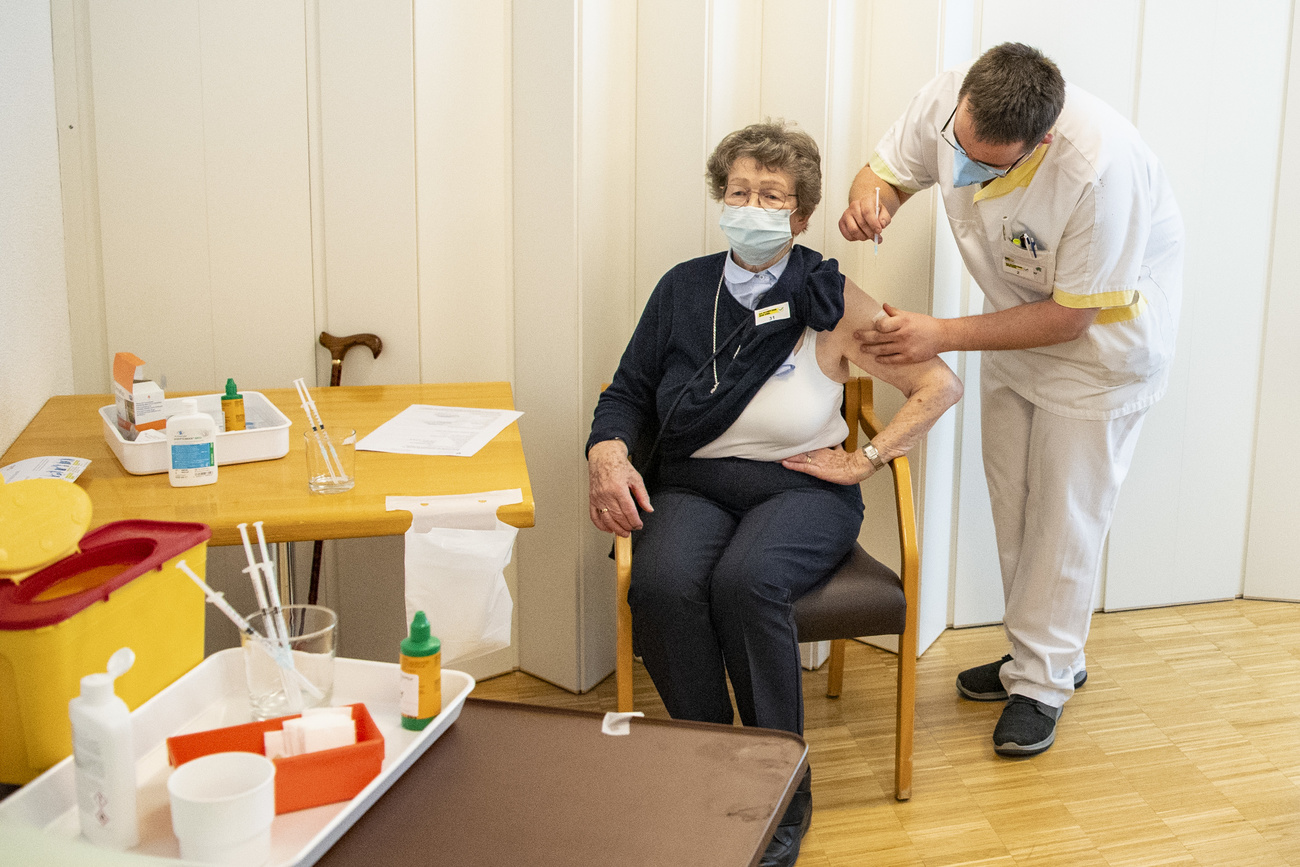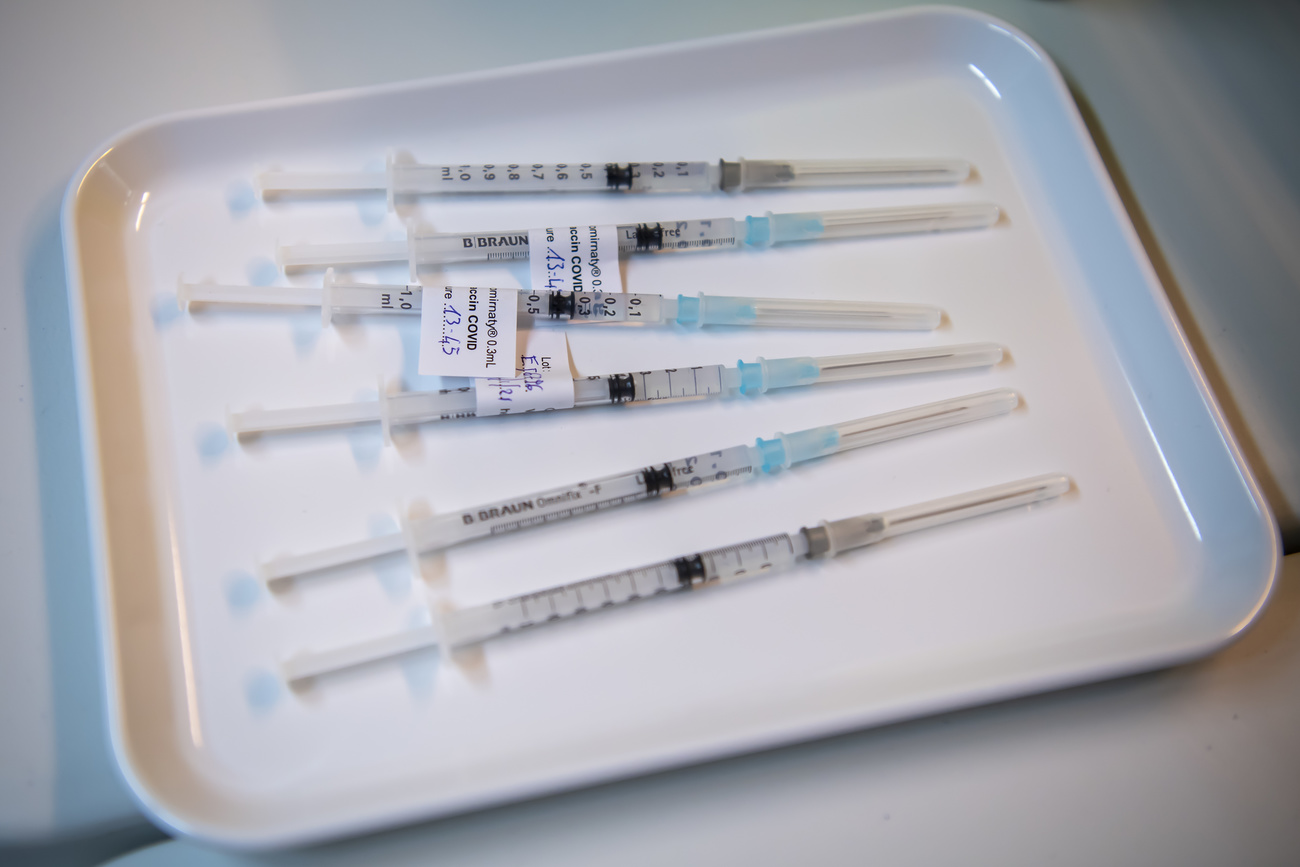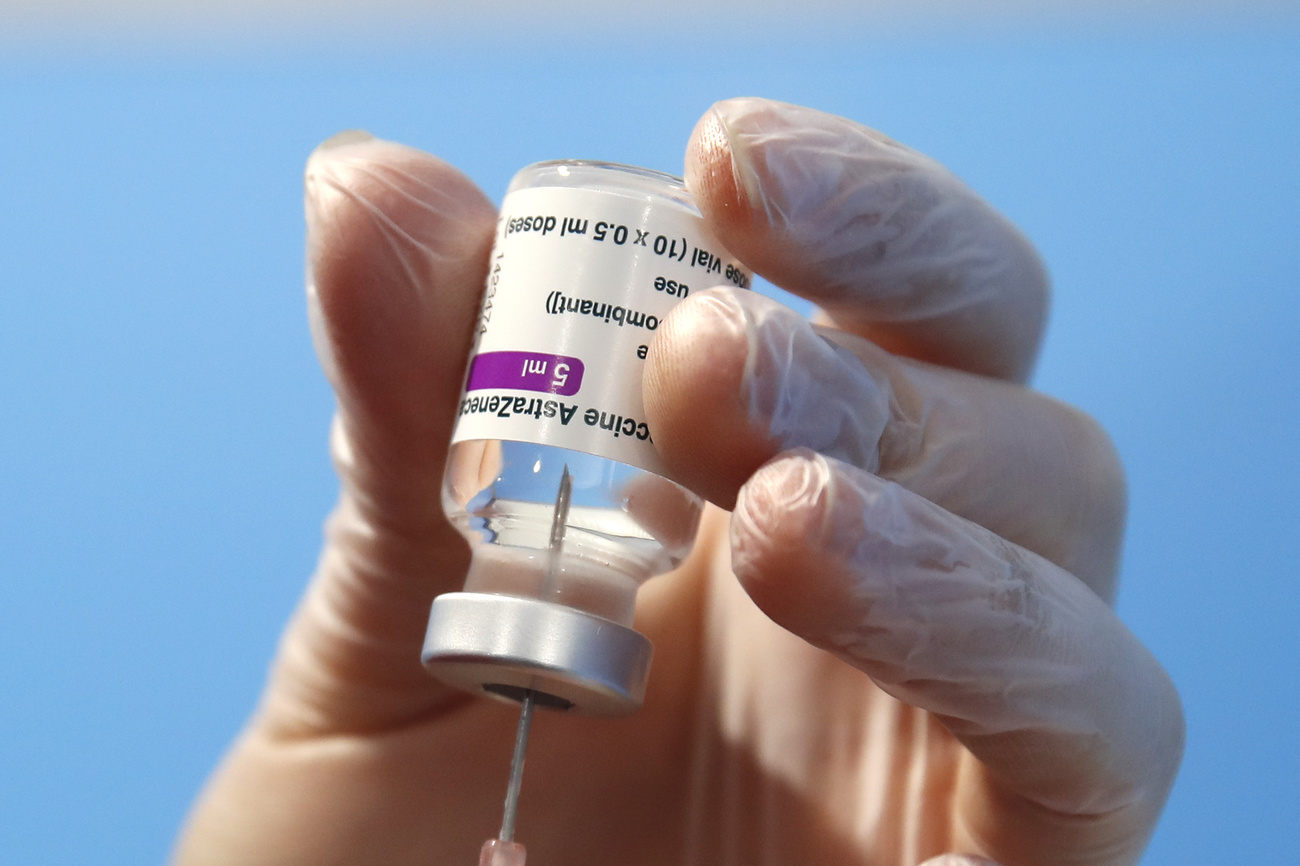Covid-19: vaccine rollout starts to bear fruit among Swiss seniors

Switzerland’s coronavirus vaccination campaign is starting to show its first effects, data shows. Although overall new infections have started to rise, among seniors - who are being vaccinated first - cases and hospitalisations are falling.
The Swiss vaccination campaign started in late December. Despite supply bottlenecks, almost 60% of people aged 80 and over have now received at least one dose of the Pfizer/BioNTech or Moderna jab. The same applies to around a third of 70-79 year-olds, Swiss public television RTS reports.
While coronavirus infections have started to rise slowly since early March with the emergence of new more contagious variants, the latest data shows the dynamic of the pandemic is changing. On March 18, the Federal Office for Public Health (FOPH) reported 1,750 new cases – up 15% on the previous week.
Over the past three weeks the virus has been spreading among the mostly unvaccinated 0-69 age group, but it is dropping among those aged 70+. The trend is even more marked among the 80+ age group.
This development is also being seen on the ground. Blaise Genton, the medical officer in charge of the vaccination campaign in canton Vaud, is pleased to see “that Covid has almost disappeared in old people’s homes in the canton”. The professor says the fall in infections among more aged seniors is “a reflection of the progress made by the vaccination”.
Improvement is also being seen for hospitalisation rate among the more vulnerable members of the population. For the first time, the number of hospitalisations of older people is less than for those in the 0-69 age group.
These initial trends were the main aim of the vaccination campaign, Genton points out. He said the strategy was to “protect vulnerable people from developing a severe form of Covid and to ease the burden on the health system by reducing the number of hospitalisations”.
Claire-Anne Siegrist, director of the Centre of Vaccinology at the University Hospitals of Geneva (HUG), also welcomes the success of the strategy. “As has been seen in clinical trials and in Israel already, vaccination protects against serious forms of Covid, even if you are aged or very ill,” she told RTS.
This trend can be seen in other countries like the United States, which has also seen a rapid decline in Covid-19 hospitalisations and deaths among older people and those in American nursing homes after vaccinations, it was reportedExternal link earlier this week.

More
Coronavirus: the situation in Switzerland
‘Just the beginning’
“It’s just the beginning and the separation of the curves is going to increase,” predicts Siegrist. She says that the effect of these “incredibly effective” vaccines will become “indisputable” after conducting a deeper analysis of people who have received two doses.
For the Geneva-based expert, the vaccination campaign and its effects could change the shape of any new peak in cases. She believes that there will be more cases, but fewer serious ones. “My hope is that we can get through the next wave by maintaining hospitalisations at the lowest level, particularly for intensive care,” she said.
Genton favours vaccinating as much of the population as possible before any return to normal life. “If we don’t vaccinate enough, the virus will continue to circulate, plus the risk of new variants is higher,” he said.
Time will tell what the effect of vaccinations will be on mortality numbers, which is always revealed in the data slightly later on. But the FOPH said on Thursday that there had been a large drop in Covid-related deaths in old people’s homes, which has fallen from 50% to 20% of the overall total in the course of several weeks.

In compliance with the JTI standards
More: SWI swissinfo.ch certified by the Journalism Trust Initiative



You can find an overview of ongoing debates with our journalists here. Please join us!
If you want to start a conversation about a topic raised in this article or want to report factual errors, email us at english@swissinfo.ch.